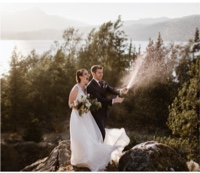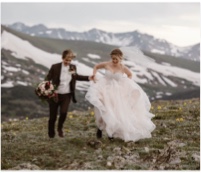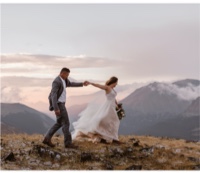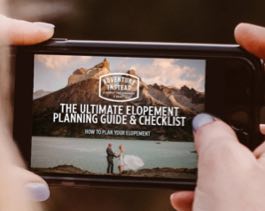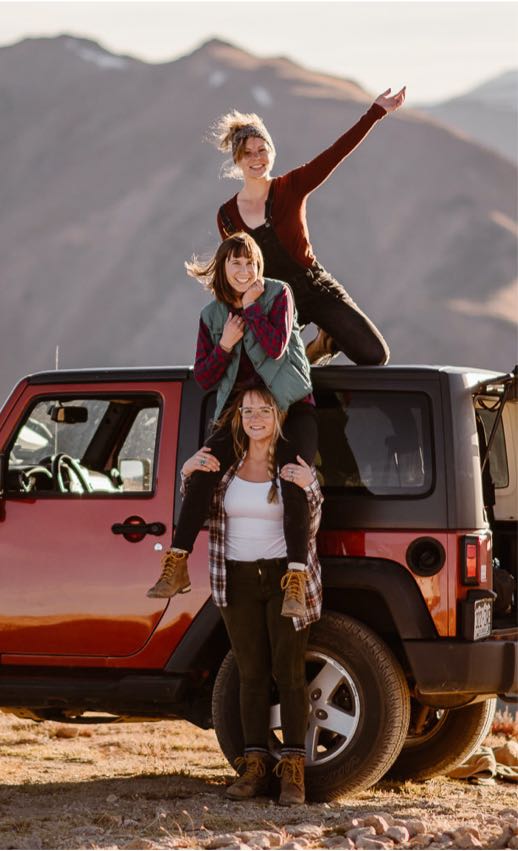 Table of Contents
Table of Contents
Self solemnization means you can marry yourself – no judge or officiant required!
Seriously, this is a real thing. Did you know Colorado is one of the only states in the US that allows self-uniting marriages? It’s one of the biggest reasons we photograph so many elopements here. The ease of getting to marry your best friend, your way, in one of the most beautiful places in the world – that is the kind of authentic marriage WE ARE HERE FOR!
So what does this mean? It means you can come to Colorado anytime, pick up a $30 marriage license from almost any DMV or County Clerk & Recorder office, go on an adventure just the two of you, say your vows, sign your license, turn it back in — and that’s a LEGIT legal wedding.
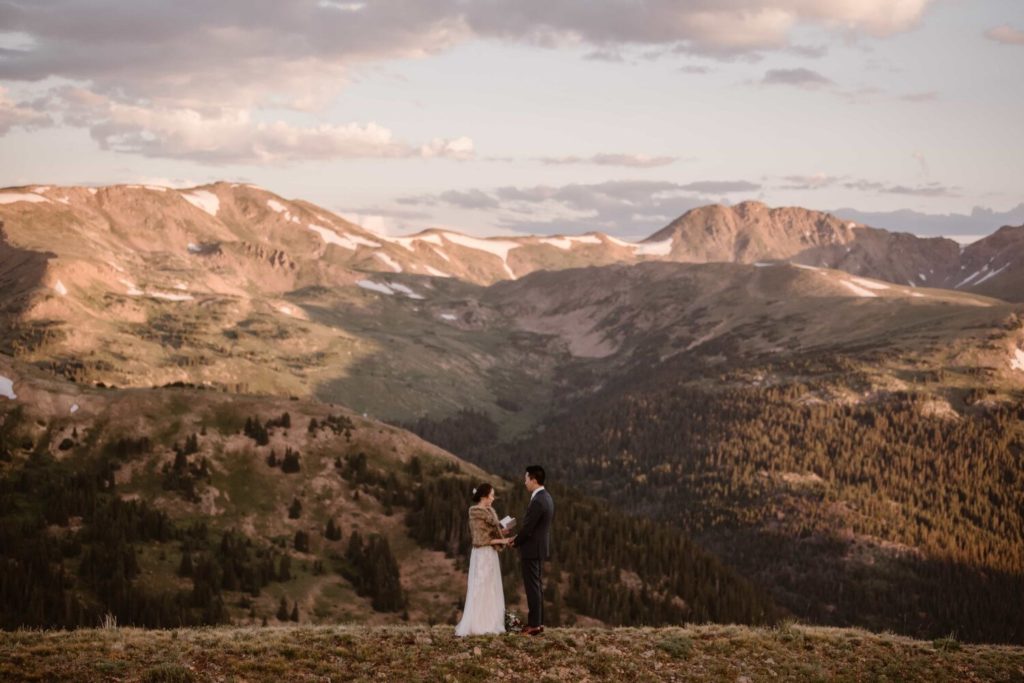
Basically, Colorado is PERFECT for elopements because of how easy it is to get married here. We don’t like to let government red tape or obstacles get in the way of you planning the wedding of your dreams – a self-solemnizing marriage is basically the most low-maintenance government form you’ll ever sign!
Keep reading to learn more about what it means to self-solemnize on your wedding day, what other states allow these kinds of ceremonies, what you should think about as you plan your ceremony, and how to have a private ceremony even in states that don’t allow it!
What does Self-Solemnizing mean?
Self-solemnizing is the act of becoming legally married by agreement between two people, without requiring the signature or oversight of a third-party officiant, celebrant, or judge.
In effect, it simply removes the complication of hiring an officiant to perform your marriage ceremony on the day of your elopement. While we don’t think the government’s opinion on the status of your marriage holds much weight compared to your own commitment, we have to admit there are many reasons to ensure your wedding ceremony is legally recognized by your state and country. Immigration, health support, children, taxes, and a bunch of other things can play a part in your desire to not just get married, but to be legally recognized as a married couple. Whatever your reasoning, if the legality is important to you – we want to ensure things are done correctly.
Self-solemnizing marriages in states that allow these kinds of ceremonies are legally recognized in other US states – that’s important. The US as a country maintains recognition of marriages from one state to another, even though states have different laws. Your US marriage license will often also be recognized by other countries, which is a question that can come up if you travel. However, we want to acknowledge that not all other countries are open to marriages that are legal in the US. Same-sex marriages, for instance, are not recognized in some parts of the world. This discrimination is further reason for us to emphasize that YOU are who defines your relationship status, NOT a piece of paper.
We are firm advocates for all discriminating marriage laws to be done away with. Until there is equal recognition of the validity of relationships between consenting adults – regardless of sex, gender, race, or any other factor – there will always be unequal effects gained by a legal marriage. While we can’t change the world by ourselves, we will do everything within our power to ensure your elopement experience is everything you want it to be – with the form of ceremony that is ideal for you two.
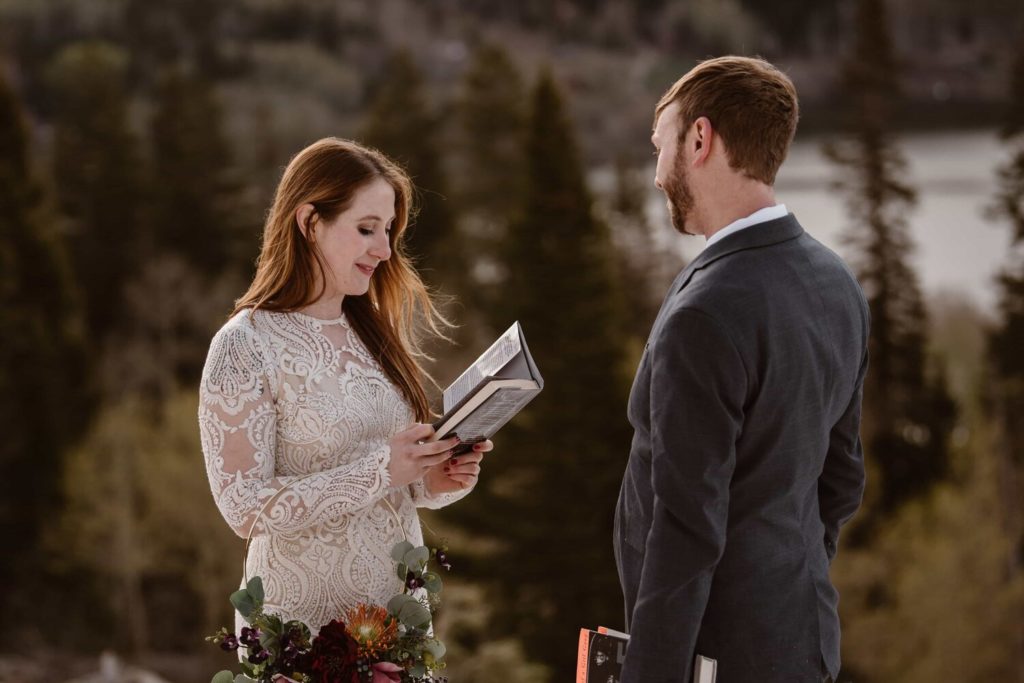
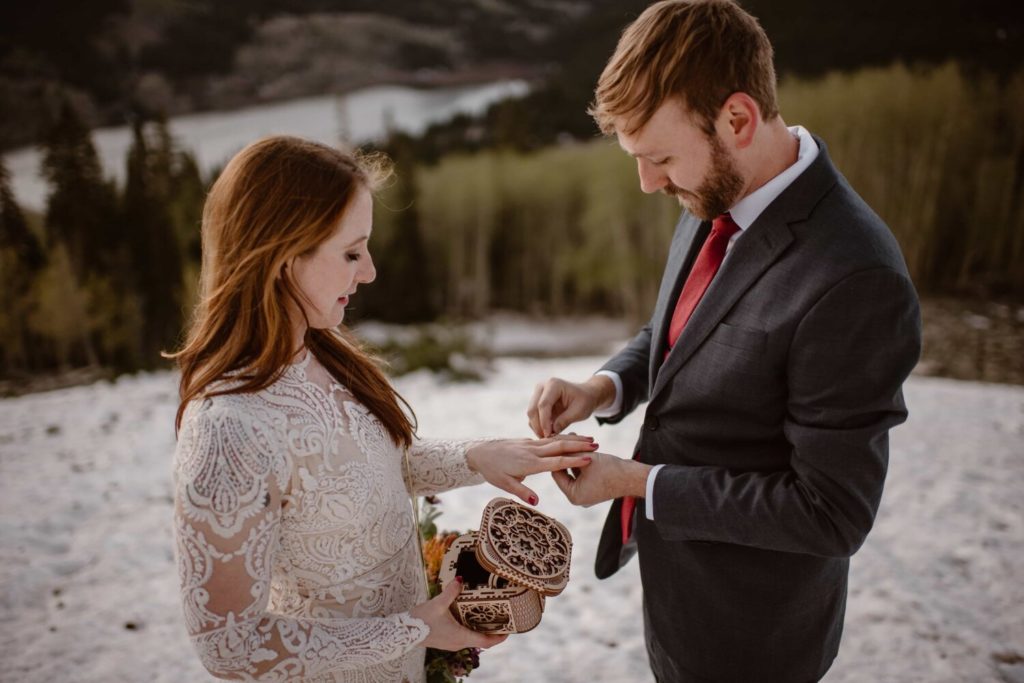
What you need to Know about Self-Solemnizing and Elopement
Self-uniting marriage ceremonies make a lot of sense for couples who are eloping outdoors. If you self-solemnize, you won’t have to find an officiant willing and able to participate in whatever activities you want to do on your wedding day! If you want to get married on a mountaintop that takes hours to hike to – it might be difficult to find an officiant whose abilities and schedules align with yours. Plus, you might simply not want to spend the day with anyone aside from your partner! As your photographer, at least we can step away with a long lens and give you time to ourselves. Officiants, while often amazing humans, don’t have a pivotal role to play outside the ceremony itself.
“…But Having someone else officiate your marriage is a historical tradition.”
There’s a deep historical tradition to getting a third party to convene and facilitate marriages. Officiants have a role steeped in that tradition to this day. There are many we’ve worked with who have adapted to modern times and modern relationships, but we totally understand how a lot of couples just don’t see the necessity of a separate entity to validate their commitment. Officiants are traditionally government officials, religious leaders, or others who play a role in governing the actions of a group of people. Government officials began officiating marriages as a way of maintaining an understanding of their citizens and crafting a paper trail to maintain order amongst the population. Religious leaders performed marriage ceremonies as conduits between couples and their gods to bring a spiritual level to their human commitment. Boat captains serve as leaders over their crew in the ocean…and the list goes on. Essentially, the role of an officiant or celebrant is steeped in the idea that marriage is about ‘more’ than just the two – that their choice involves powers greater than themselves, and will affect the community they live in.
It’s your marriage – begin it your way
We believe no one else’s opinions about your marriage matter more than yours.
We’re not so naive to think there aren’t benefits to community support, but we firmly believe YOU should get to choose the importance of other’s opinions on your relationship. If you don’t feel supported by the community you were born into, raised in, or live amongst – you shouldn’t feel obligated to perform marriage rites for their sake. Choosing to elope is choosing to plan a wedding celebration that aligns with your vision and your values. Self-solemnizing marriage ceremonies give eloping couples the freedom to truly do things exactly the way they want, using the words and language that mean the most to them, surrounded by only the people they feel most supported by in these choices.

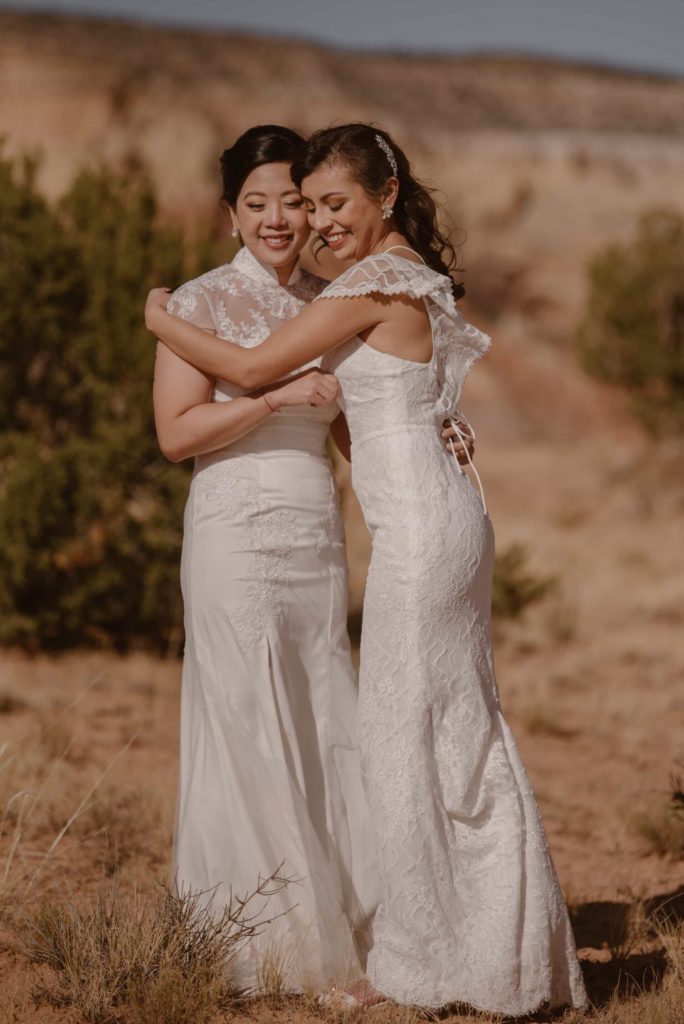
States Where You Can Officiate Your Own Marriage
- Colorado and Washington D.C. allow self-solemnizing marriages without any separate application or conditions.
- Wisconsin similarly allows self-solemnization without question – but, requires a form to be signed acknowledging the government cannot guarantee a self-uniting marriage will be acknowledged in all contexts.
- Pennsylvania allows it provided you have 2 witnesses to sign in place of an officiant.
- Nevada, Kansas and Maine allow self-solemnizing if you identify as ‘Friends’ or ‘Quakers’ and get married through the avenues typical of those organizations.
- Illinois allows self solemnization in accordance with religious or indigenous ceremonies.
- California has a separate marriage license application for couples who identify with a “non-clergy” belief system, but still requires two witness signatures.
Colorado is our personal favorite and easiest place to self-marry (we’re biased since more than half our team is based here), but, as you can see, it’s possible to get legally married through the ceremony in a small handful of states.
Still, don’t discount the idea if you’re not looking at one of the above states.
If you want to get married in a state or country where self solemnization isn’t allowed, but you want to have a private ceremony, it’s still possible. You have two options in that situation. First, you can get legally married at the courthouse prior to your elopement and have a commitment ceremony on the day of your wedding. Or second, you can have a private ceremony on the day of your elopement and your Adventure Instead photographer can sign as an officiant. Then, on the hike down from your elopement (or any time during the day) we can ask people to sign as witnesses. We’ve done this many times and strangers are often stoked to help out! We’ve asked fellow hikers, strangers at trailheads, front desk hosts at hotels, and even a floatplane pilot to sign as witnesses for our couples – every time they did so with excitement and many congratulations to the newlyweds!
If a self-solemnizing ceremony sounds like the perfect kind of wedding day for you, let’s make it happen! If you want to have a totally private and just-us ceremony on the day you get married – you deserve that. There are so many ways to personalize a ceremony that isn’t following the structure of a traditional wedding – you can basically do anything you want! But there are a few specific things we’ve found to help couples plan a truly unique and authentic elopement – keep reading for tips to help you plan your wedding.
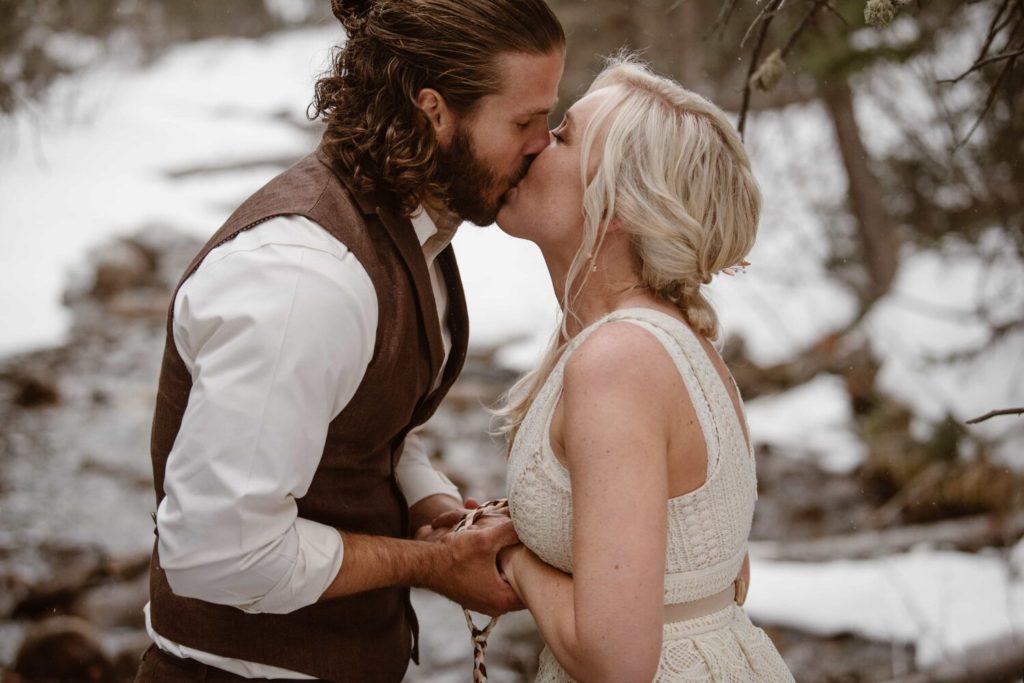
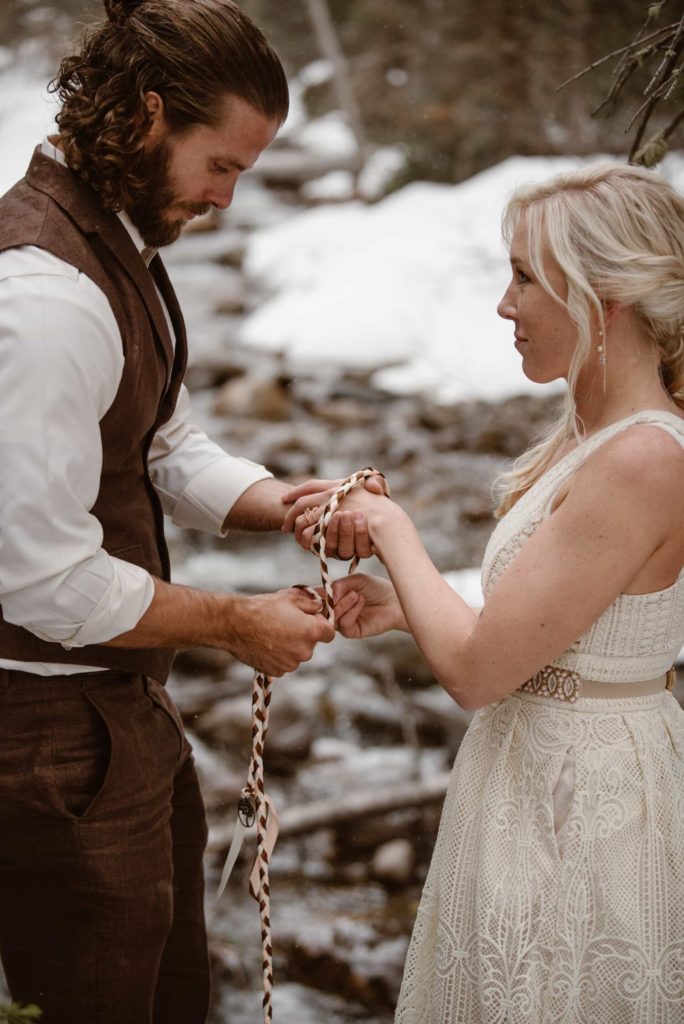
Tips for Planning a Self-Solemnizing Wedding Ceremony
Okay, you’ve decided you want to self solemnize on your wedding day – now you just need to plan your elopement! There are a few things couples often do differently for self-solemnizing ceremonies, so we want to share that insight with you to help you decide what you want your ceremony to look like. Whatever you do, know that there’s no script you need to follow. We’ve said it before, and we’ll keep saying it – your wedding vision is valid and you deserve a true-to-you marriage celebration that aligns with your goals and values!
Write your own vows
Self-solemnizing couples often write their own vows. Because they aren’t following a “repeat after me” script, they can say whatever means the most to each other. You can write each other letters, and or read letters from loved ones not in attendance.
Your ceremony can occur during any activity
You can hold hands and look into each other’s eyes while standing on a mountain top, or you can do something else! Your ceremony can be whatever you want – whether it looks traditionally like a couple standing before a physical altar, or holding hands jumping out of an airplane, or sitting next to each other in a canoe, or signing to each other without any spoken words. We’ve put together a shortlist of activity ideas to get your mind going.
Your ceremony can be as long, or as short, as you want
You don’t have to write novels for vows, but you can if you want to! You can plan an elopement that dedicates only a few minutes to the ceremony itself, or you can center your wedding ceremony as the most important part of the day. Your elopement day is yours to spend your time in whatever way is most important to you – there’s no ‘right’ length of time to use language to communicate your commitment. You can speak to your commitment through action and spend your elopement day doing whatever you both love!
If you’re inviting guests – kids, friends, or family – let them sign
One of the benefits of self-solemnizing is that it does not require an officiant for a witness’s signature – you can have anyone sign! If you have small children, they can sign the paperwork. If you’ve invited your dog along, they can sign via muddy paw print. Even though you’re self-solemnizing, you don’t need to do this 100% on your own – you can further personalize the experience to include loved ones without having to bring along a government-approved official.
Choose your location & make a plan for filing the paperwork
Familiarize yourself with the laws of the location where you’ll be getting married. Know if there’s a waiting period, if you need witnesses, and what the process is for ensuring your paperwork gets filed properly. When you have an officiant, they often sign and send in your completed marriage license following the ceremony. There’s often a time limit – 10 to 30 days – when your license is valid and you must file it within that time frame. Since you’re doing everything yourself, make sure you and your partner have a plan for following through with the paperwork.
Let your imagination run wild
As you begin planning your elopement, let go of all the traditional expectations. We’ve been told our whole lives that weddings look a certain way – white dress, black suit, towering church, formalwear, dance receptions, and dozens of supportive family members. Well, real life isn’t the movies. Instead, you can make your wedding look and feel however you want! Let the creativity flow and ask yourself, “if I could do ANYTHING on my wedding day, what would I do?” Don’t be shy – the wilder the ideas, the better! As you finalize your plans, you’ll turn those wild ideas into a day that is truly possible. Don’t let yourself be limited by what weddings should be, and instead focus on what your elopement can be!
Self-solemnizing is a way to truly craft your wedding to suit your ideals, your goals, and your vision. No one else can tell you what would be perfect for you, only you know that. We’ve photographed hundreds of adventurous elopements over the years and the one thing they all had in common – they were all different! With each unique celebration, we become more convinced that couples deserve the openness and freedom built into elopements instead of traditional weddings, and self-solemnizing is a way to further personalize your dream wedding to become better than you’ve ever imagined!
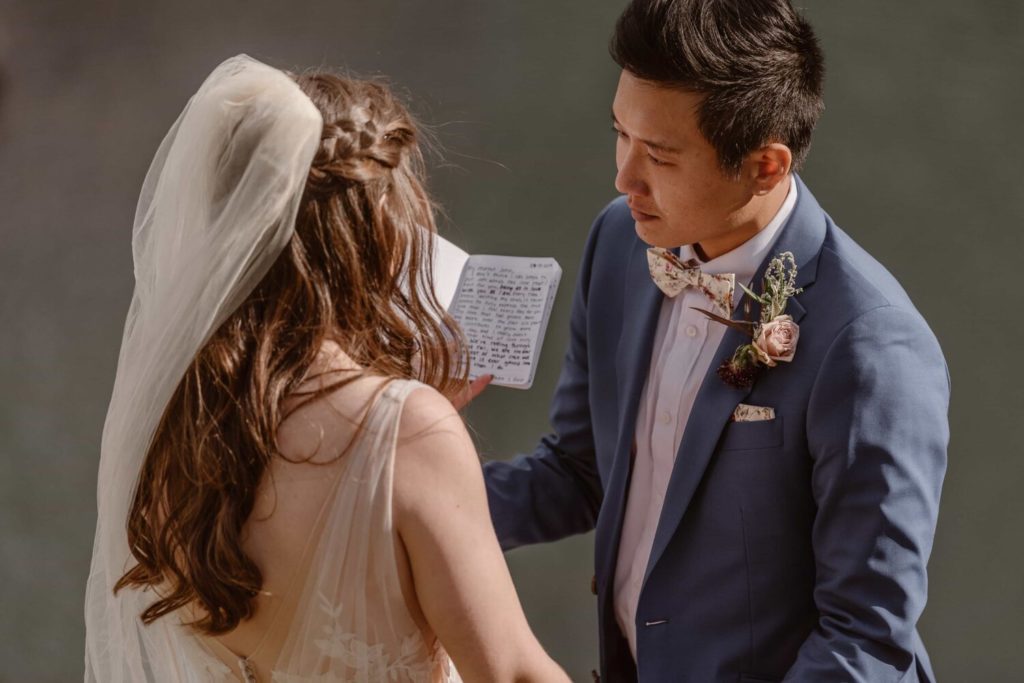
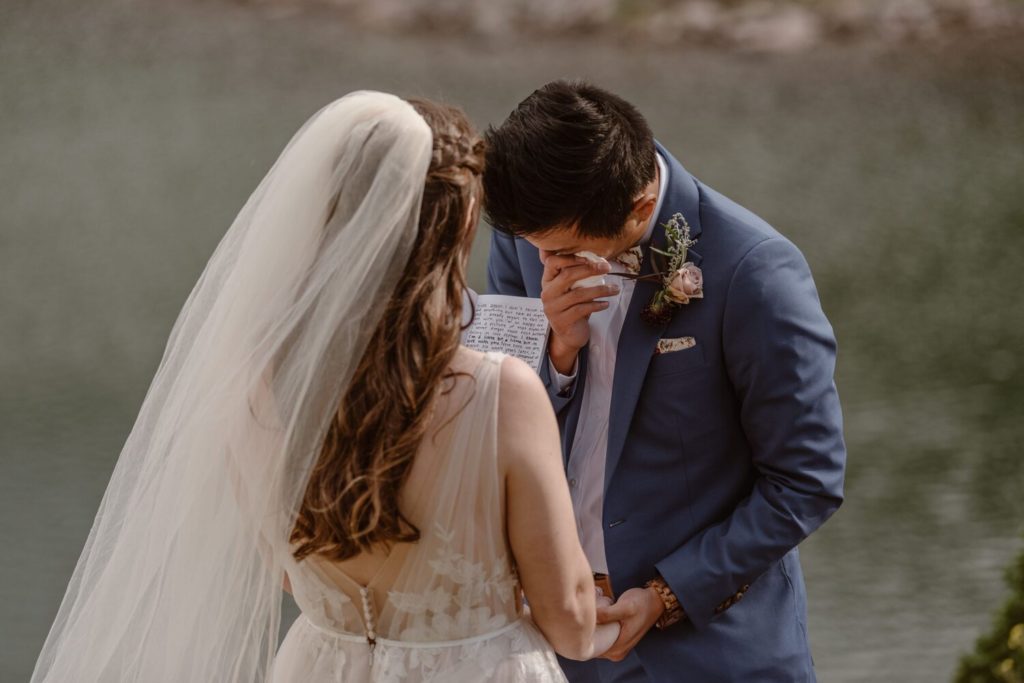
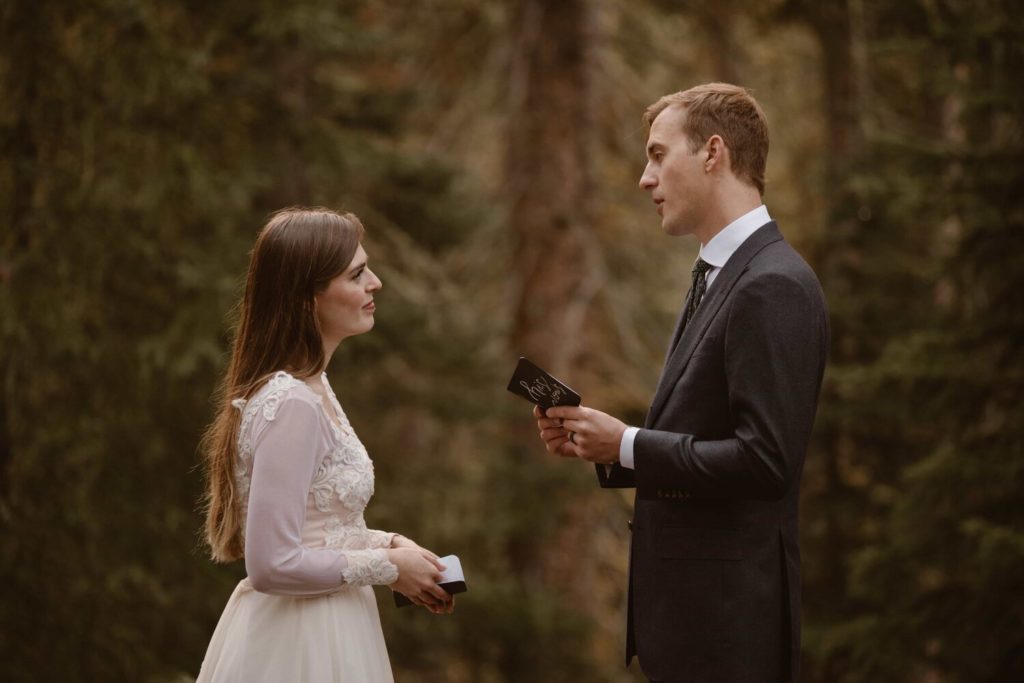
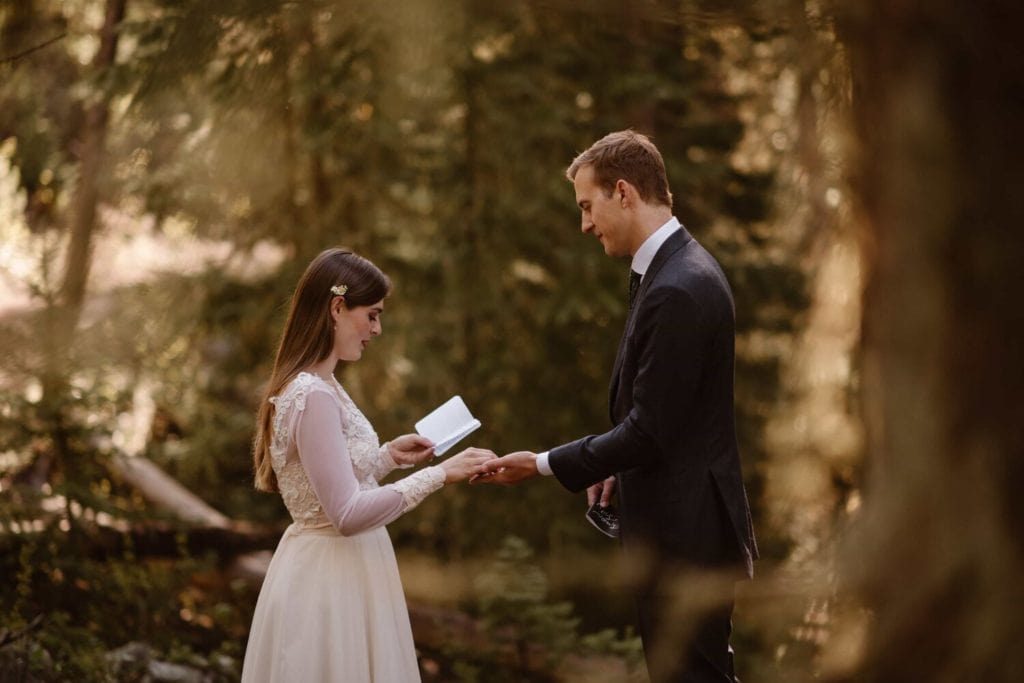
FAQs about Self-Solemnization
A: Colorado, Pennsylvania, Wisconsin, and Washington D.C. all allow self-solemnization in some way, but have different requirements. View Requirements…
A: All of us at Adventure Instead are certified officiants, ordained & recognized in most states, so, we can legally sign for you. Anyone you see on your elopement can sign as witnesses – fellow hikers, rental hosts, or strangers on the street. As long as we say a few magic words required by the state, you can have a totally just-us vow exchange!
A: Yes! Self-uniting marriage ceremonies are legally binding marriages, as long as the state and county the marriage license originated from allows this form of ceremony.
A: To be legally married through self solemnization, you still must apply for and file a marriage license. You still have to create the paper trail to be considered legally married, but ultimately your relationship status and title is up to you – as it should be. Call yourselves husband, wife, partner, lover, or whatever else feels right!
A: That’s a great question! Technically, you can apply for a marriage license in a self-solemnizing state, go home with take-out pizza, and sign the license in your pajamas. No one says you have to make a big deal out of this. However—marriage is an important moment in your relationship. As elopement photographers, we strongly believe you deserve to make the day as big, or as small, as you want to and that an intentional personalized elopement is the BEST way to start a marriage! The point is to enjoy yourself and celebrate your way. Make your marriage a memory you can look back on with a smile, remember fondly on difficult days, and be proud of your relationship and its foundation.
A: Yes! Just because you can sign, doesn’t mean it has to be you. In fact, you don’t need anyone licensed to sign as your officiant in a self-solemnizing state. So, if you’ve got kids or family members whose signature you’d love to have on the marriage license, they can sign! Anyone can lead your ceremony, act as an officiant or celebrant, and it is still a legal marriage in a self-solemnizing state.
A: Yes! If you want to self-solemnize and lead your own wedding ceremony, you can do that with or without guests in attendance. Self-solemnizing doesn’t mean you need to have a just-us wedding, it simply gives you the option to have a private ceremony if you want one.
So, does self-solemnizing sound like the type of wedding ceremony perfect for your wedding vision? If so, send us a message!
We’d love to answer any more questions you may have and help you plan your dream elopement – no matter where in the world you want to get married!





